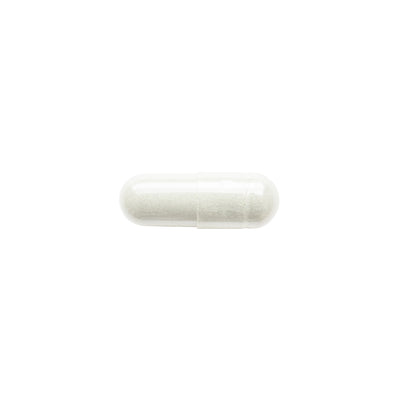4 energy-boosting nutrients you may be lacking
We all struggle with sluggishness from time to time, but if you find yourself slumped on the couch most days, it could partly be due to your diet.
Don’t worry: getting back on track doesn’t mean sucking down celery juice or replacing your burger bun with a rubbery bell pepper. It just means being smart about what you eat. Start by adding these 4 key nutrients into your diet. You’ll be feeling energized faster than Netflix can ask “are you still watching?”
1) Fiber
I often hear people say carbs make them feel bloated or sluggish. A lot of diets encourage us to limit or even eliminate carbs to alleviate those feelings. But don’t swear off the starchy stuff just yet.
Carbs are actually your body’s preferred choice for quick fuel. They’re especially important if you exercise frequently, as they help you recharge and replenish your muscles after a workout.
To tackle that ugh feeling, you may just need to change the amount or type of carbs you’re eating. Try pairing whole grains with either a protein or a fat: Yogurt with granola, popcorn with nutritional yeast, and oatmeal with fruit are all sure to satisfy, helping you stay fully fueled without that heavy, bloated feeling.
2) Vitamin B-12
Ever noticed how “energy drinks” always contain 10,000% + of your Recommended Daily Value of B-12? This celebrity vitamin is often associated with instant energy because it plays a starring role in your metabolic processes (converting food to energy). But in reality, more B-12 doesn’t necessarily equal more oomph. Adding it to your diet will only help you if you’re filling a nutrient gap.
If you’re over 60, eating a plant-based diet, or have a digestive disorder like IBS or Celiac, you may be low on vitamin B-12 and feeling drained as a result. If that’s the case, try a plant-based milk, cereal or bread that’s been fortified with B-12 (read the Nutrition Facts label to make sure) or try seasoning your food with a nutritional yeast. You may find it’s enough to put a spring back in your step.
3) Iron
Fatigue is a classic sign of iron deficiency. Without Iron, your cells won’t get the oxygen they need to do important things like power your muscles. If you eat a plant-based diet, menstruate or have malabsorptive disorders (like IBS or Celiac), there’s an increased risk that you’re low on this vital nutrient.
If you’re vegan or vegetarian, try to get 1 to 2 plant-based sources of iron a day, like lentils or beans. If you’re a meat eater, three servings of chicken (dark meat), eggs or beef per week should cover you.
4) Vitamin D aka the Sunshine Vitamin
Vitamin D plays a vital role in energy production by lending a hand to your mitochondria. These are the powerhouses of cells that use oxygen to supply the energy your body needs for everyday activities. It’s one of the trickiest nutrients to get from your diet, though. If you’re not getting enough, it can result in extreme fatigue.
Luckily, your body can create vitamin D from the sun. It does this by converting cholesterol in the skin to vitamin D3, a process that’s powered by UVB light. This plant-like adaptation sounds like something out of a sci-fi movie, but it’s a real phenomenon. Unfortunately, like any good sci-fi, it also has its limits.
If you wear a lot of sunscreen or live in a more northerly latitude (think North of San Diego) you may not be getting enough UVB to generate vitamin D, especially during the colder months. If you’re feeling sluggish and you think low sunlight could be the culprit, try getting outside for at least 15 minutes a day without sunscreen. If this isn’t an easy option, or if sunlight is hard to come by in your neck of the woods, a daily vitamin D supplement is an easy way to get what you need.
Questions about energy supplements?
When it comes to energy nutrients, there is no one-size-fits-all solution. If you’re interested in trying supplements and not sure where to start, take our free nutrition assessment to find out exactly what you need to get your bounce back.
Not sure where to start?
You can take a look at our selection of energy supplements.
Need more personalized approach ?
Contact us via Chat, available 7/7 a professional naturopath will be happy to help you.
This information is not intended as a substitute for the advice provided by your physician or other healthcare professional or any information contained on or in any product label or packaging. Do not use the information from this article for diagnosing or treating a health problem or disease, or prescribing medication or other treatment. Always speak with your physician or other healthcare professional before taking any medication or nutritional, herbal or homeopathic supplement, or using any treatment for a health problem. If you have or suspect that you have a medical problem, contact your health care provider promptly. Do not disregard professional medical advice or delay in seeking professional advice because of something you have read in this article.
References:
- Elia M, Folmer P, SchlatmannA, Goren A, Austin S. Carbohydrate, fat, and protein metabolism in muscle and in the whole body after mixed meal ingestion. Metabolism. 1988;37(6):542-551.
- Hanif N, Anwer F. Chronic Iron Deficiency. [Updated 2021 Aug 11]. In: StatPearls[Internet]. Treasure Island (FL): StatPearls Publishing; 2022 Jan-. Available from: https://www.ncbi.nlm.nih.gov/books/NBK560876/
- Dzik KP, Kaczor JJ. Mechanisms of vitamin D on skeletal muscle function: oxidative stress, energy metabolism and anabolic state. Eur J Appl Physiol. 2019;119(4):825-839.
- Gao Q, Kou T, Zhuang B, Ren Y, Dong X, Wang Q. The Association between Vitamin D Deficiency and Sleep Disorders: A Systematic Review and Meta-Analysis. Nutrients. 2018;10(10):1395. Published 2018 Oct 1. doi:10.3390/nu10101395
- 4 energy-boosting nutrients you may be lacking By Allie Sartori, MSN https://www.personanutrition.com/blog/4-energy-boosting-nutrients-you-may-be-lacking/




